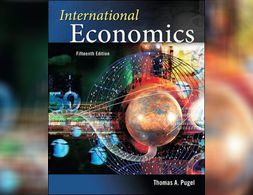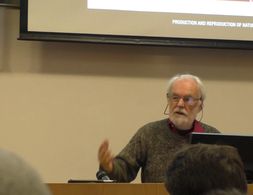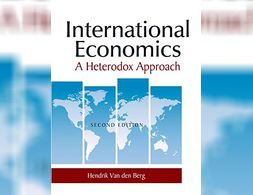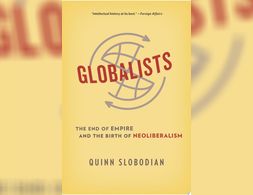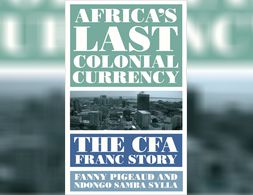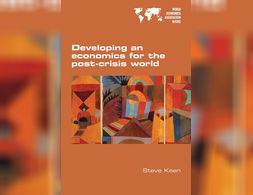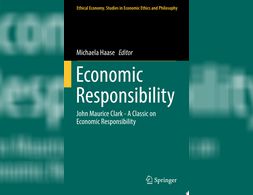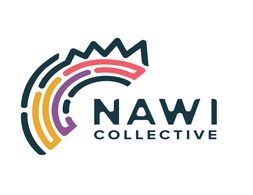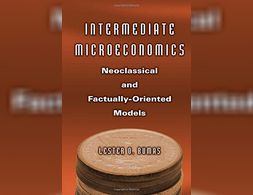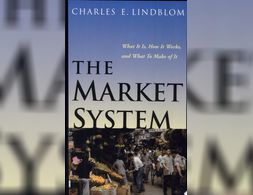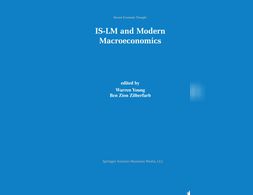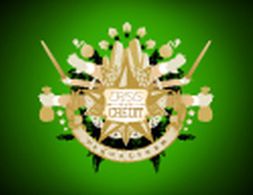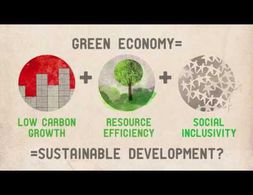✕
1157 results
International Economics, 15e continues to combine rigorous economic analysis with attention to the issues of economic policy that are alive and important today in this field.
Professor David Harvey presents a complete visual representation of the flow of capital in all its forms. Similar to the Water Cycle diagrams, Harvey models the economics of production, consumption, human reproduction, labor, private business, and government redistribution.
Devine begins with an analysis of the theory and practice of capitalist planning, central planning and 'market socialism'. He argues that, while market socialism is currently favoured by many economists who reject both capitalism and the command planning of the Soviet model, it cannot fulfil the promises held out for it.
This course will expose students to some of the key debates that link digital transformations to economic, social, and political inequalities. Students will be familiarised with a variety of theoretical movements in development studies and internet studies: exploring thinking that frames the internet as a leveller that can bridge divides vs. exploring the internet as an infrastructure that amplifies existing inequalities.
"The Company of Strangers: A Natural History of Economic Life" by Paul Seabright is an engaging and informative book that explores the complex relationship between economic behavior and human instincts. Seabright uses real-world examples to present complex ideas in a clear and accessible way. The author argues that the market is not only a place for exchanging goods and services but also relies on trust, cooperation, and social norms.
The Commentary explains the circular value chain and innovation potential along it. Focusing on Israel, examples on how cross-industry collaboration can help supporting a successful positioning in a (Digital) Circular Economy are presented.
Now in its third edition, this textbook covers all of the standard topics taught in undergraduate International Economics courses. However, the book is unique in that it presents the key orthodox neoclassical models of international trade and investment, whilst supplementing them with a variety of heterodox approaches.
In this teaching pack, we look at the acquisition of Twitter by Elon Musk. In particular, we focus on what it means to take a company private and how the deal was financed.
The 2022 FIFA World Cup (including the construction work required for it) provides a clear example of economic activity that has taken place despite the financial costs to the Qatari state being an order of magnitude larger than the financial benefits it will receive. Whilst this is a fairly extreme case in terms of how many different costs and benefits are involved and how unequally they have been spread, many economic decisions are more complicated than mere financial calculations and it is therefore vital for students to be able to think about multiple dimensions involved in economic decisions.
The authors show how consumers, business, the Federal Reserve, and government take into account what's going on around them to make critical decisions like buying new products, building new factories, changing interest rates, or setting budget goals. The book provides a clear roadmap to understanding the whole story behind the global economy.
This course covers recent advances in behavioral economics by reviewing some of the assumptions made in mainstream economic models, and by discussing how human behavior systematically departs from these assumptions.
"The New Classical Macroeconomics "gives an accessible, rigorous, critical account of the central doctrines of the new classical economics, without unnecessarily difficult mathematics. It focuses on four central issues: the foundation of monetary theory; monetary and fiscal policy; labour supply and business cycles; and the attack on econometric models.
In this video, Clara Mattei investigates the function of austerity in relation the stabilization of capitalism as a form of social order build around private property, wage labor and class relations. In order to develop this argument, she situates austerity in the history of World War 1 and its revolutionary aftermath. Zooming in on the politicization of the economy and the associated threat to class society that emerged in the period, she highlights how austerity was a „tool of reaction“ that was successful in curtailing demands for economic democracy and a society free from class oppression.
In the first intellectual history of neoliberal globalism, Quinn Slobodian follows neoliberal thinkers from the Habsburg Empire’s fall to the creation of the World Trade Organization to show that neoliberalism emerged less to shrink government and abolish regulations than to deploy them globally to protect capitalism.
Anwar Shaikh seeks in his lectures for alternative explanations for empirically observed macro and microeconomic patterns of economic fluctuations, price volatility, and economic development.
This book discloses the economic foundations of European fiscal and monetary policies by introducing readers to an array of alternative approaches in economics. It presents various heterodox theories put forward by classical economists, Marx, Sraffa and Keynes, as a coherent challenge to neoclassical theory.
Colonialism persists in many African countries due to the continuation of imperial monetary policy. This is the little-known account of the CFA Franc and economic imperialism.
This unique up-to-date volume not only provides state-of-the-art discussions of the most recent developments in modern macroeconomics but also includes a series of interviews with leading economists that shed new light on the major intellectual and policy issues of the 1990s. The book is at once an invaluable text and a superb overview that will be welcomed by teachers and students alike.
Since the Middle Ages, literature has portrayed the economic world in poetry, drama, stories and novels. The complexity of human realities highlights crucial aspects of the economy. The nexus linking characters to their economic environment is central in a new genre, the "economic novel", that puts forth economic choices and events to narrate social behavior, individual desires, and even non-economic decisions.
Big challenges lie ahead for our society: increased automation of work, and the threat of catastrophic climate change. But so, too, are the huge possibilities presented by new technology and better ways of organising our economy in the wake of neoliberalism's failure.
Our public services are in dire need of investment. But in the middle of a debate over competing spending plans, isn’t it also time to ask what we want our public services to actually do for us? That’s the view of group of economists and campaigners who are pushing for something called ‘Universal Basic Services’ – a radical expansion of high-quality public services for all to areas like transport, childcare and social care.
This book is a collection of Steve Keen's influential papers published over the last fifteen years. The topics covered include methodology, microeconomics, and the monetary approach to macroeconomics that Keen - along with many other non-mainstream economists - has been developing.
Identity politics is everywhere, polarising discourse from the campaign trail to the classroom and amplifying antagonisms in the media. But the compulsively referenced phrase bears little resemblance to the concept as first introduced by the radical Black feminist Combahee River Collective.
This is a great book Against the background of the dogmatism of much of modern economics Fullbrook has produced an innovative wide ranging argument for narrative pluralism The timely book is beautifully written accessible to all provocative extraordinarily insightful and extremely compelling Tony Lawson Cambridge University UK This fascinating and …
John Maurice Clark’s article “The Changing Basis of Economic Responsibility,“ published in the Journal of Political Economy, is the topical starting point for all scholars interested in economic responsibility and responsible economic action.
The Nawi Knowledge Portal is an open access repository that features for multi themed research outputs and knowledge products. They aim to amplify the work of African women working to demystify the space of macroeconomic policy from a Pan African feminist to the widest possible audience.
This is the first intermediate microeconomics textbook to offer both a theoretical and real-world grounding in the subject. Relying on simple algebraic equations, and developed over years of classroom testing, it covers factually oriented models in addition to the neoclassical paradigm, and goes beyond theoretical analysis to consider practical realities.
A direct and fundamentally optimistic indictment of the short-sightedness and intellectual arrogance that has characterized much of urban planning in this century, The Death and Life of Great American Cities has, since its first publication in 1961, become the standard against which all endeavors in that field are measured.
In this clear and accessible book, an eminent political scientist offers a jargon-free introduction to the market system for all readers, with or without a background in economics
IS-LM is perhaps the prime example of `cognitive dissonance' in economics, and is problematic to many economists. On the one hand, the IS-LM model is still taught by many academic economists or they use it to derive the AD-AS approach. On the other hand, the same economists realize the limitations of the basic IS-LM model and would not now use it for policy analysis, as they did in the past. The distinction between pedagogical and analytical efficacy is made by all the authors in this volume regarding the IS-LM model.
The historical situation of low interest rates after the Fed's response to the 2001 crisis alongside with huge foreign money inflow to the US are presented as the historical context in which subprime lending and financial instruments like CDOs and CDS evolved. Then those instruments as well as the concept of leverage are explained briefly.
What is sustainable development and what is the idea of a green economy? What is the role of the green economy in the current triple crisis? The short video discusses the concept and in particular the concerns about a green economy, especially with regards to inequality and poverty. The short statements in the video also reflect other possibilities of transformation.
We use cookies on our website. Click on Accept to help us to make Exploring Economics constantly better!

